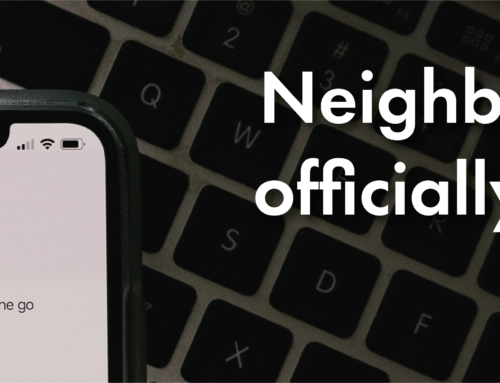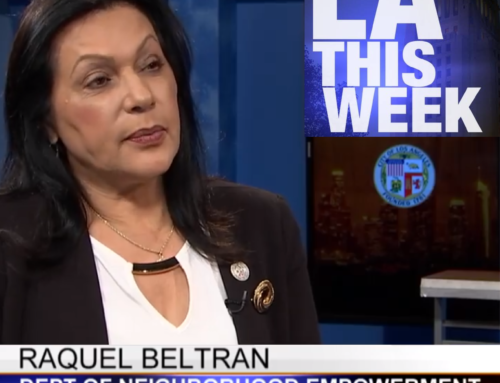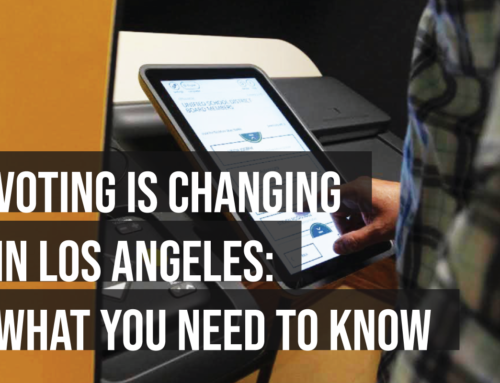As the City continues its economic recovery from a recession that challenged many Angelenos, we must work collaboratively to maximize every resource at our disposal to keep Los Angeles on a path toward prosperity. My administration is focused on promoting good jobs for every resident, restoring City services to improve the livability of our neighborhoods, and creating a more sustainable and livable city.
The Consolidated Plan (Con Plan) establishes a strategy that aligns the City’s resources to fund catalytic projects that increase economic opportunities for City residents, and transforms low-income neighborhoods into sustainable communities of opportunity. This is possible through the leveraging more than $84 million in annual allocations of the Community Development Block Grant (CDBG), Emergency Solutions Grant (ESG), HOME Investment Partnerships Program (HOME), and Housing Opportunities for Persons with AIDS (HOPWA) grant funding from the U.S. Department of Housing and Urban Development (HUD).
The City approved its 2013-2018 Transit-Oriented Consolidated Plan which integrates and maximizes transit, community, economic and housing development investments. Its development included a comprehensive analysis of need indicators and assets, which include transit, housing, public services and community amenities. Results of this needs- and place-based planning approach indicate that transit corridors have the highest potential for leveraging public and private investments.
In accordance with the Transit-Oriented Consolidated Plan, the City’s 41st Program Year (PY) 2015-16 Annual Action Plan (Action Plan) continues to make investments that provide decent housing, a suitable living environment, and expanded economic opportunities by addressing housing and transportation costs.
Accordingly, the Con Plan put forth the following strategic goals:
- Jobs: Foster attractive and diverse employment opportunities in highly accessible locations.
- Housing: In highly accessible locations, foster housing options that meet diverse housing needs.
- Quality of Life: In highly accessible locations, foster the provision of basic services and additional community benefits.
- Connectivity: Foster diverse transportation options that reduce overall travel time and out of pocket transportation costs.
Efforts to achieve these goals are focused in the following strategic directions in the Con Plan:
- Build communities of opportunity by aligning community, economic, and housing development investments with transit opportunities to improving access and livability of neighborhoods.
- Maximize community and economic impact through place-based strategies focused on pportunities around transit corridors that provide access to jobs.
- Support programs that create jobs, increase family economic stabilization and mobility, create and preserve affordable and workforce housing, and reduce and end homelessness.
- Link and leverage limited Con Plan resources with other resources and investments to sustain and expand community benefit.
- Increase operating efficiency and effectiveness of the City and partners through continued consolidation, integration, and standardization of public services and community development activities.
Estimated Funding
On June 10, 2014, the U.S. House of Representatives passed its 2015 Transportation, Housing and Urban Development (THUD) funding bill with reduced funding for three grants in the Con Plan; ESG was passed with level funding. The Senate has not yet approved its THUD bill, but the draft included recommended funding for CDBG (-3%), HOME (-5%), HOPWA (level), and ESG (level). Since that time, the House and Senate passed a Continuing Resolution that enacts spending through December 11, 2014. By doing so, Congress ensures that federal agencies will have the appropriate level of funding to prevent a government shutdown. The Resolution puts into effect an across-the-board funding reduction of 0.0554 percent from the 2014 levels, with some exceptions. Still to be determined when lawmakers return to Capitol Hill following the midterm elections is how they will fund agencies for the remainder of the fiscal year. Delays in Congressional actions during the past year make it difficult to estimate the timeline for approval for the four grants.
The table below reflects the potential reductions for Los Angeles compared to PY 40 (2014-15), based on the approved House funding. The schedule for the City to complete its Action Plan requires that we start our efforts based on estimated allocations because the actual allocations are released too late for planning purposes.
These funds are allocated for a range of activities that advance the goals and objectives as defined in the 2013-17 Five-Year Consolidated Plan, however, the City expects funds for the PY 41 (2015-16) will likely decrease compare to the current year.
In addition to the federal entitlement grants, the Action Plan is funded with program income (funds generated by Action Plan funded projects) and program savings (reprogrammed funds from past projects). By current projections of CDBG program income to be received in PY 40, which is used to calculate the cap on public services for the next year, we are anticipating a decrease in the cap on public services for next year.
There is also a smaller decrease anticipated for CDBG planning and administrative activities, which are also capped. If the proposed federal HOME reduction were realized at the City level, the amount available for HOME planning and administrative activities would also decrease.
Following the loss of the former Community Based Development Organization (CBDO) funding, options available under the HUD regulations were reviewed to determine options for providing services using CDBG funds. No viable alternative has been identified, however the City continues to explore possibilities to addressing this policy issue in the long term.
This letter serves as the official notification for the PY 41 Action Plan application process. I strongly encourage the identification of economic development and neighborhood improvement projects that would result in creating and retaining living wage jobs, promoting new economic development activity within the City, and nurturing small businesses so that they may flourish. I have launched the City of Los Angeles Greats Streets Initiative, a place-based strategy, which focuses on developing Great Streets that activate the public realm, provide economic revitalization, and support great neighborhoods. I encourage you to take this Initiative into consideration in your application development, and consult with the Great Streets Working Group as necessary. I have also committed to President Obama’s Mayors Challenge to End Veteran Homelessness, and urge you to consider how to assist homeless vets in housing and rental assistance as you plan for next year’s projects. Attached for your information are the calendar and instructions for the PY 41 Action Plan applications. Adherence to these instructions will help maintain a timely schedule and facilitate transparent analysis of all applications.
Let’s continue to expand our successful efforts to work together, and to leverage existing and future investments to that spark sustainable growth and prosperity for all Angelenos.
Sincerely,
ERIC GARCETTI
Mayor
41st (2015-16) Program Year HCD Action Plan
Application Instructions
Action Plan Application Process and Considerations
Applications for the Action Plan will be accepted from October 8 through October 28,
2014 from City Departments via City staff (see calendar in Attachment 2) through the
City’s Consolidated Plan Application System (CPAS) at http://conplan.la-serves.org/41/,
using Internet Explorer.
Guidelines for PY 41 applications:
× Any applications intended for capital projects should be for projects where the construction is ready to start as of April 2015. It is critical that federal funds be spent quickly on projects with sufficient funds to begin and complete construction.
× If you are considering applying for funding and already received City general funds for the same projects or services, your projects and services would not be eligible for federal funds, as the City cannot supplant its own funds with federal funds.
× Applications submitted for CDBG Public Service activities should include a budget exercise reflecting the impact of a 30 percent reduction or the line item not being funded.
× No new applications will be accepted for Public Service or Planning/ Administration activities.
Any non-City entities interested in funding should contact the appropriate implementing City department or the Los Angeles Housing and Community Investment Department (HCIDLA) to discuss possible funding through the City department, or should see Attachment 3 about accessing opportunities through the Los Angeles Business Assistance Virtual Network available online at http://www.labavn.org.
HCIDLA provided the training for application submission from August 7 to 15, 2014. Please contact hcidla.grantsadmin@lacity.org if you need additional information or did not attend the training. HCIDLA staff is available to assess eligibility and project development.
Community Meetings
Community meetings to solicit resident input were held in mid-September 2014 and will be held as well in January and February 2015 after the release of the draft Action Plan. Comments are used to inform the development of the Action Plan and the City solicits feedback about the draft Plan once it is released. Locations and dates will be posted to the website hcidla.org/PlansAndReports.
Additional Information and Assistance
HCIDLA administers funding for the HOME Investment Partnership Program (HOME) and Housing Opportunities for Persons with AIDS (HOPWA). Individual project funding under these entitlement programs is managed through a Request for Proposals (RFP) or Requests for Qualifications (RFQ) process. In coordination with HCIDLA, funding opportunities under the Emergency Solutions Grant (ESG) program is managed by the Los Angeles Homeless Services Authority (LAHSA). For more information about these programs, please visit hcidla.lacity.org and lahsa.org/.
If you are ineligible to submit an application for Action Plan funding, we recommend that you explore the following potential funding resources:
• Los Angeles Business Assistance Virtual Network—http://www.labavn.org
• Apply for funding and technical assistance from foundations, government
agencies, and other organizations
• Consider cost effective options of offering services, such as collaboration with
other organizations








